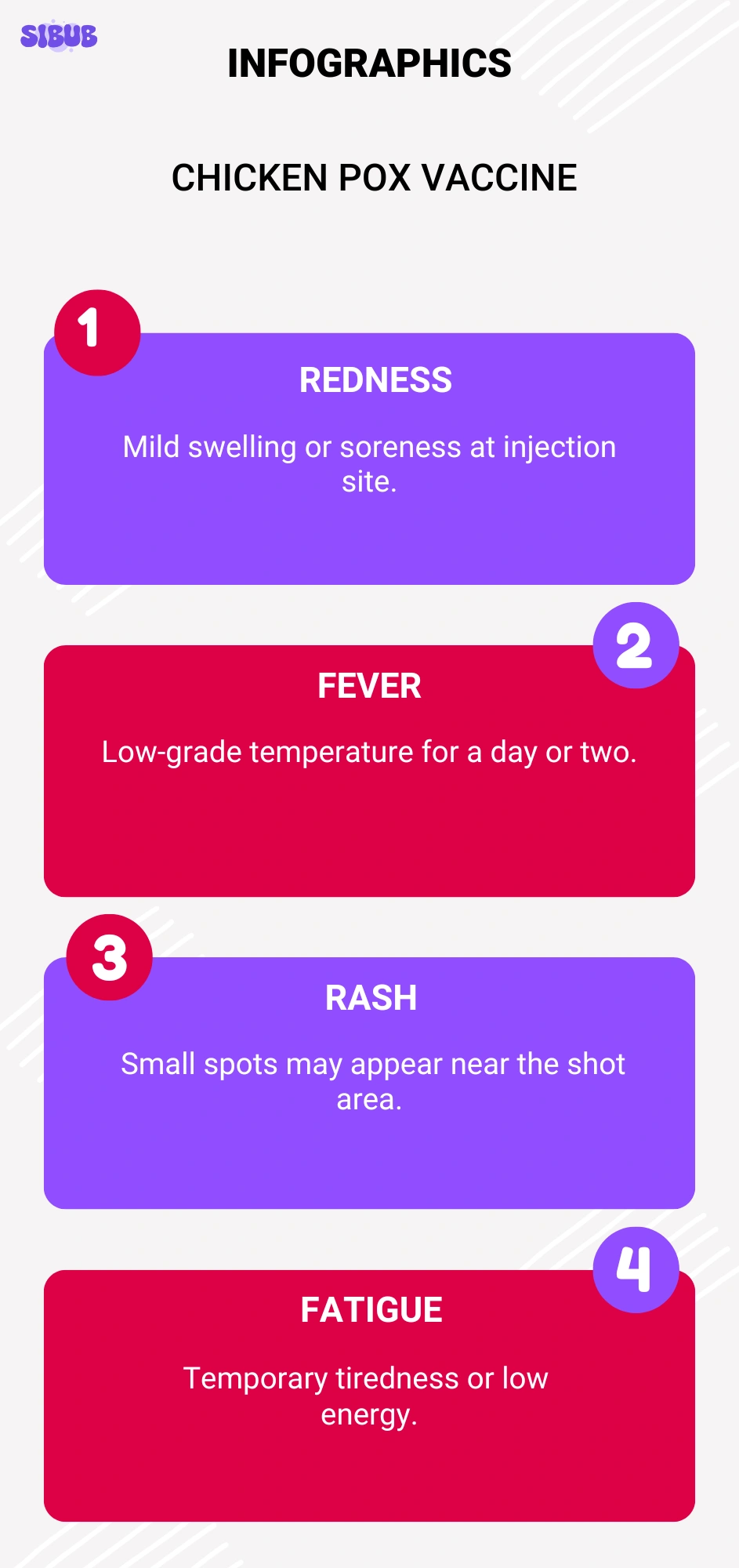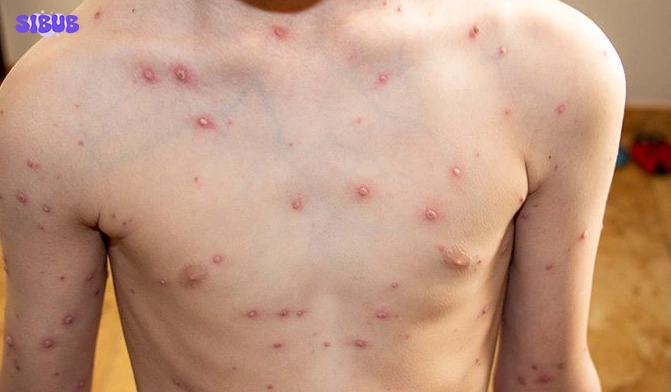As a mom and health writer, I’ve had many talks with fellow parents about vaccines—especially the chicken pox vaccine. It’s normal to wonder if your child needs it or if it’s safe. The varicella shot may seem like just another on the long vaccine list, but it plays a big role in protecting kids.

It may seem that chickenpox is an unproblematic condition, yet it can be a real problem. Fortunately, the vaccine is tested, safe and has many users. Here is what it is, what is its side effects and why it is important to your family.
What Is the Chicken Pox Vaccine?
Chicken pox vaccine (also known as varicella vaccine) prevents chicken pox, which is caused by the varicella-zoster virus. It is used on children that tend to receive two doses of this vaccine, the initial one at the age of 12-15 months and the other when the children are aged at 4-6 years.
Even adults who did not receive the chickenpox should also get it. Itchy rashes, fever, and potential complications such as infections or pneumonia are alleviated with the aid of the vaccine. It was introduced in the U.S. in 1995, and it transformed the process through which we can minimize the risk of children endangering themselves because of this disease, that previously used to be so frequent.
Getting immunized helps one to avert the sick days, physician trips and the lengthy recovery periods with ease. It is a wise and risk-free decision.
When did the chickenpox vaccine come out
You might always think when was the vaccine for chickenpox invented? In 1995 in the United States, the chicken pox vaccine was released. Before that, almost all kids acquired chickenpox before age 10. It was created in order to avoid serious itching, fevers, and rare and serious complications. Doctors felt the necessity to prevent school outbreaks and minimize the number of visits to the hospital.
Following the introduction of the vaccine, it has reduced the number of chickenpox cases by over 90 percent. Fewer children missed school, and fewer parents had to abandon work. In the U.S. and most other countries, it soon became an essential component of childhood vaccination.
Common Varicella Vaccine Side Effects
So as you know when did varicella vaccine come out, let’s find out the common effects of it. The majority of the children will be dealing with the chicken pox vaccine. Nonetheless, it is also good to be aware of the common side effects of the varicella vaccine. It can cause the injection site to be sore/swollen/red during the following day or two.
Other children acquire a small rash, which has a few spots and is normally around the shot site. There is also a prevalence of low-grade fever. These reactions are typical and indicative of the fact that the body is developing immunity.

These are not very long-term and tend to disappear on their own. It can be helped by giving your child additional fluids and rest. Side effects are very severe and not common. Whenever you are not sure or the symptoms are not getting better, make sure to consult your paediatrician. In the majority of cases, these side effects will not be a problem at all.
Rare but Serious Varicella Vaccine Symptoms
Although the vaccine to chicken pox is safe most of the time, symptoms of the varicella vaccine are rare. These are extremely rare and necessary to know. Be alert for allergic reaction symptoms such as rashes, swelling of the face or inability to breathe.
Very rarely, a child can enter a phase of seizure because of a high fever. This is termed a febrile seizure, and in most cases, this does not bring any lasting damage. Call your doctor immediately if you notice that your kid is extremely weak, experiences some difficulties staying awake, or cries altogether.
These symptoms do not imply that the vaccine is poor; rather, what they imply is that your child should be taken care of. There is always a risk of serious reactions, but the colleagues say that it does happen very rarely, so it is better to be sure and consult the doctor when it does not seem right.
Shot for chickenpox adults
Most adults are asking whether they should have the chicken pox vaccine as well. You may need the adult chicken pox vaccine even in case you never had the shot, or chicken pox as a child. This is especially pertinent to the caregivers, whether medical professionals or teachers, or even those who are concerned with small children.
Vaccines also help in preventing grave illness and complications of any disease, like pneumonia. After you get in the presence of an infected individual with chickenpox, an immediate shot within 5 days will help you prevent or at least minimize the effects. Talk with your physician about how to take care of your immunity. One can never be too late to defend oneself.
Can You Still Get Chickenpox After the Vaccine?
Yes, one can still contract chickenpox even after the vaccine, but usually in a very mild way. Provided that the symptoms are much less severe, perhaps some red marks appear, the patient feels a slight fever and recovers just as quickly.

And after immunization, the majority of the children and adults do not fall ill. Though it is not stopping a virus entirely, the vaccine helps your body to combat the virus. The version is far safer and less risky compared to natural infection. This is the reason why the doctors continue to recommend the chicken pox vaccine as long-term protection.
Final Thoughts
The vaccine against chicken pox is handy and safe to give your child protection. Not only does it reduce the chances of serious sickness, but it also prevents the transmission of the disease to other people.
Most of the side effects are minor and are short-lasting. It is an intelligent move towards a healthy future. Never forget to ask your doctor, in case you have any questions or worries. They are also able to advise you depending on the health and history of your child. Prevention is peace of mind.
